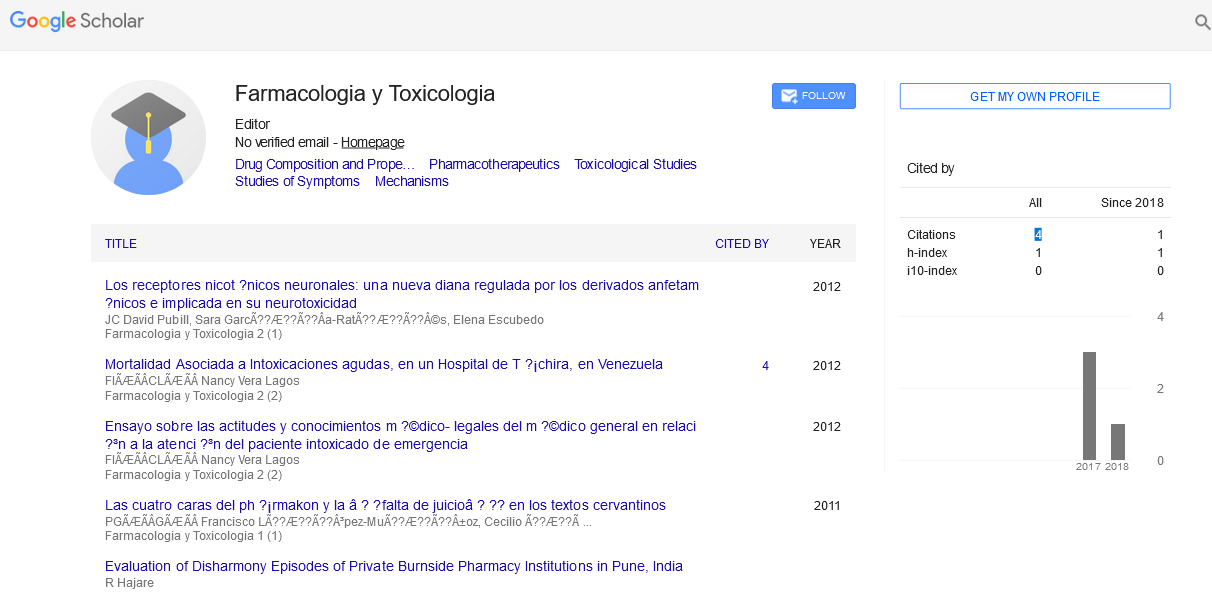Perspective - (2024) Volume 14, Issue 5
Pharmacogenomics: Unraveling the Genetic Blueprint of Drug Responses
Linda Rieswijk*
Department of Medical Genetics, University of Infantia, Pangasinan, Philippines
*Correspondence:
Linda Rieswijk, Department of Medical Genetics, University of Infantia, Pangasinan,
Philippines,
Email:
Received: 07-Aug-2024, Manuscript No. IPFT-24-15134;
Editor assigned: 12-Aug-2024, Pre QC No. IPFT-24-15134 (PQ);
Reviewed: 26-Aug-2024, QC No. IPFT-24-15134;
Revised: 01-Oct-2024, Manuscript No. IPFT-24-15134 (R);
Published:
29-Oct-2024
Introduction
Pharmacogenomics is an interdisciplinary field at the
intersection of pharmacology and genomics, aiming to
understand how an individual's genetic makeup influences their
response to medications. This emerging discipline promises to
revolutionize personalized medicine by tailoring drug therapies
to individual genetic profiles, enhancing efficacy, minimizing
adverse effects, and optimizing therapeutic outcomes. As we
delve into this complex and transformative field, we will explore
the foundational concepts, current advancements, and future
directions of pharmacogenomics.
Description
Understanding pharmacogenomics
At its core, pharmacogenomics combines the principles of
pharmacology, which is the study of drug action and interaction,
with genomics, the study of genes and their functions. The field
focuses on identifying genetic variations that influence drug
metabolism, efficacy and safety. Genetic variations, known as
polymorphisms, occur within our DNA sequence and can affect
how we respond to drugs. These variations can influence drug
absorption, distribution, metabolism and excretion, thereby
impacting the overall therapeutic outcome.
Genetic variations and drug response
Genetic variations can be classified into several types, with
Single Nucleotide Polymorphisms (SNPs) being the most
common. SNPs are variations at a single nucleotide position in
the DNA sequence among individuals. For instance, a SNP in the
gene encoding the cytochrome P450 enzyme, which is involved
in drug metabolism, can lead to differences in how effectively a
drug is metabolized. Individuals with different SNPs may require
varying doses of the same medication to achieve the desired
therapeutic effect.
Key genes in pharmacogenomics
Several key genes have been identified as critical in
pharmacogenomics. These genes encode proteins that are
involved in drug metabolism, transport and target interactions.
Some notable examples include:
Cytochrome P450 Enzymes (CYPs): The cytochrome P450
family of enzymes plays a crucial role in the metabolism of many
drugs. Variations in genes encoding these enzymes, such as
CYP2D6, CYP2C19 and CYP3A5, can lead to differences in drug
metabolism rates. For instance, individuals with certain CYP2D6
variants may metabolize drugs like codeine or antidepressants
more quickly or slowly than others, affecting their efficacy and
safety.
UDP-Glucuronosyltransferases (UGTs): UGT enzymes are
involved in the conjugation and elimination of various drugs.
Variations in genes such as UGT1A1 can affect the metabolism
of drugs like irinotecan, a chemotherapy agent. Variants in
UGT1A1 can lead to severe side effects or reduced effectiveness
of the drug.
Transporter proteins: Transporter proteins, such as
those encoded by the ABC (ATP-Binding Cassette) and SLC
(Solute Carrier) families of genes, influence the absorption,
distribution and excretion of drugs. Variants in genes like
ABCB1 (P-glycoprotein) can affect drug absorption and
clearance, impacting overall drug efficacy and safety.
Drug targets: Genetic variations in drug target genes can also
influence drug response. For example, variations in the gene
encoding the beta-adrenergic receptor can affect the response
to beta-blockers used in treating hypertension and heart
conditions.
Clinical applications and bene its
The integration of pharmacogenomics into clinical practice
holds significant promise for personalized medicine. By
identifying genetic markers associated with drug response,
clinicians can make more informed decisions about drug
selection and dosing, leading to several benefits:
Enhanced efficacy: Pharmacogenomic testing can help
identify the most effective drug and dosage for an individual
based on their genetic profile. This personalized approach can
improve treatment outcomes and increase the likelihood of
therapeutic success.
Reduced Adverse Drug Reactions (ADRs): Genetic testing can
help predict the risk of adverse drug reactions by identifying
individuals who are more likely to experience negative side
effects due to genetic variations. This can lead to the selection
of alternative therapies or dosage adjustments to minimize risks.
Optimized drug dosing: Genetic variations can influence how
drugs are metabolized, affecting the optimal dosage required.
Pharmacogenomic testing can guide dose adjustments to
achieve therapeutic levels while minimizing the risk of toxicity.
Challenges and future directions
Despite its potential, pharmacogenomics faces several
challenges that need to be addressed for broader
implementation. One major challenge is the need for
comprehensive and diverse genetic databases to ensure that
findings are applicable to different populations. Currently, most
pharmacogenomic research is based on data from
predominantly European populations, which may not fully
represent genetic diversity.
Another challenge is the integration of pharmacogenomic
data into clinical practice. This requires the development of
robust guidelines and the education of healthcare professionals
to interpret and apply genetic information effectively.
Additionally, issues related to cost, privacy and ethical
considerations must be addressed to facilitate widespread
adoption.
Conclusion
Pharmacogenomics represents a transformative shift in the
way we approach drug therapy, moving from a one-size-fits-all
model to a more personalized and precise approach. By
understanding how genetic variations influence drug response,
we can tailor treatments to individual genetic profiles, improving
efficacy and reducing the risk of adverse effects. While
challenges remain, ongoing research and technological
advancements are poised to unlock the full potential of
pharmacogenomics, paving the way for a new era of
personalized medicine. As we continue to unravel the genetic
blueprint of drug responses, pharmacogenomics promises to
enhance patient care and transform the future of healthcare.
Citation: Rieswijk L (2024) Pharmacogenomics: Unraveling the Genetic Blueprint of Drug Responses. Farmacologia Toxicologia, Vol.14 No.5: 049





